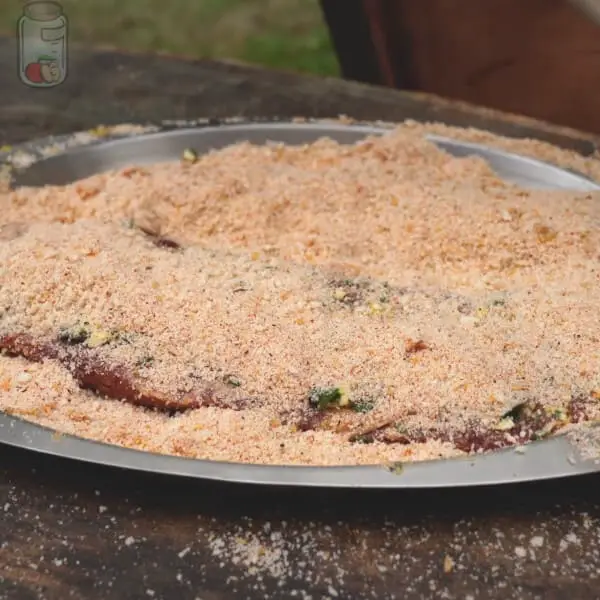The Russian salad is a well-known dish worldwide. For this reason, there are different versions. Usually, it always carries potatoes, carrots, peas, and mayonnaise, but how is the Russian salad preserved?
The Russian salad for having so many ingredients, and because its primary dressing is mayonnaise, you only can keep it in the fridge for 3 or 4 days, 2 or 3 days if the salad includes eggs.

To know the right way to preserve Russian salad, read on.
Keep Russian salad in the fridge
Russian salad is a cold dish, so it should be kept refrigerated all the time. In addition, it should not be more than 2 hours at room temperature because it would be damaged.
However, just putting the bowl with the salad in the fridge is not enough, especially if you prepared the salad in advance.
To store the Russian salad in the fridge, you have to follow the steps below:
- Step 1: Transfer the salad to an airtight container.
They can also be several containers if you want to divide the Russian salad into several portions.
- Step 2: Cover the top of the container with plastic film.
The plastic film will provide protection, preventing possible contamination.
- Step 3: Label with the current date.
Place a label with the date of storage, or write it in the date on the container, to know how long it has been refrigerated.
- Step 4: Store in the coldest area of the refrigerator.
The back of the refrigerator is usually the coldest part of it. There, the temperature is much more stable, which helps to preserve the salad better.
If you follow all these steps, the Russian salad can be in the fridge for 3 or 4 days, although if it contains eggs, the time is reduced to 2 or 3 days. [1]
Can Russian salad be frozen?
No, you should not freeze Russian salad. As mentioned above, Russian salad carries several ingredients, and not all of them are frozen well, especially mayonnaise or eggs.
How do you know if the Russian salad is spoiled?
Here are the signs that indicate that the Russian salad got bad:
- Stink. If the salad has a bad smell, such as rancid or rotten, it is best to discard it.
- It’s watery. Usually, if the salad has a lot of liquid, which should not be, it is a sign that the mayonnaise was separated because you stored it too long or did not store it properly.
- Bad taste. If when tasting the salad, it has a bitter or rancid taste, it has already expired. For this reason, it is not convenient to ingest it, and it must be thrown away so as not to suffer intoxication.
- It has mold. Russian salad is a dish with a lot of humidity, so it usually develops mold if it is not stored correctly or has been in the fridge for too long. So if you see black or greenish spots, you must discard the salad.
Why does Russian salad get bad?
Russian salad decomposes in less than a week, mainly due to moisture. Mayonnaise is a component that provides creaminess and flavor but makes the dish moist.
Moisture causes bacteria to proliferate. For this reason, if the Russian salad is more than hours out of the fridge, enough bacteria will have developed that will no longer be suitable for consumption.
In addition, boiled eggs do not last too long in the fridge, especially in a humid environment, because it accelerates their decomposition process.
Besides, if the mayonnaise is homemade, it will last much less because the eggs do not go through any cooking process, and you risk getting Salmonella.
This bacterium is attached to the eggshells by the bird’s feces, which can contaminate the interior by some breakage or crack.
How long does Russian salad last?
| Product | Duration |
| Russian salad without refrigerated egg | 3 – 4 days |
| Russian salad with chilled egg | 2 – 3 days |
What is the best way to preserve Russian salad?
The only way to preserve Russian salad is to store it in the fridge, in an airtight container so that nothing falls inside it and is not so exposed.
Another method of preservation would be to preserve the ingredients separately.
If you are interested in knowing how to preserve some foods, this site has a long list of topics about it.
[1] https://www.foodsafety.gov/food-safety-charts/cold-food-storage-charts






